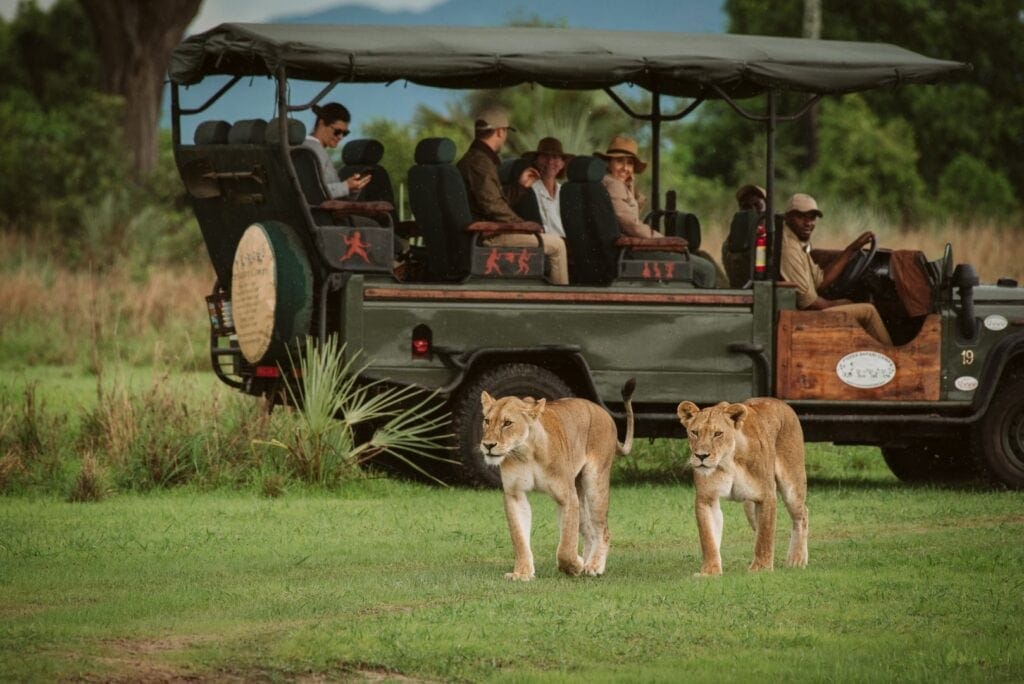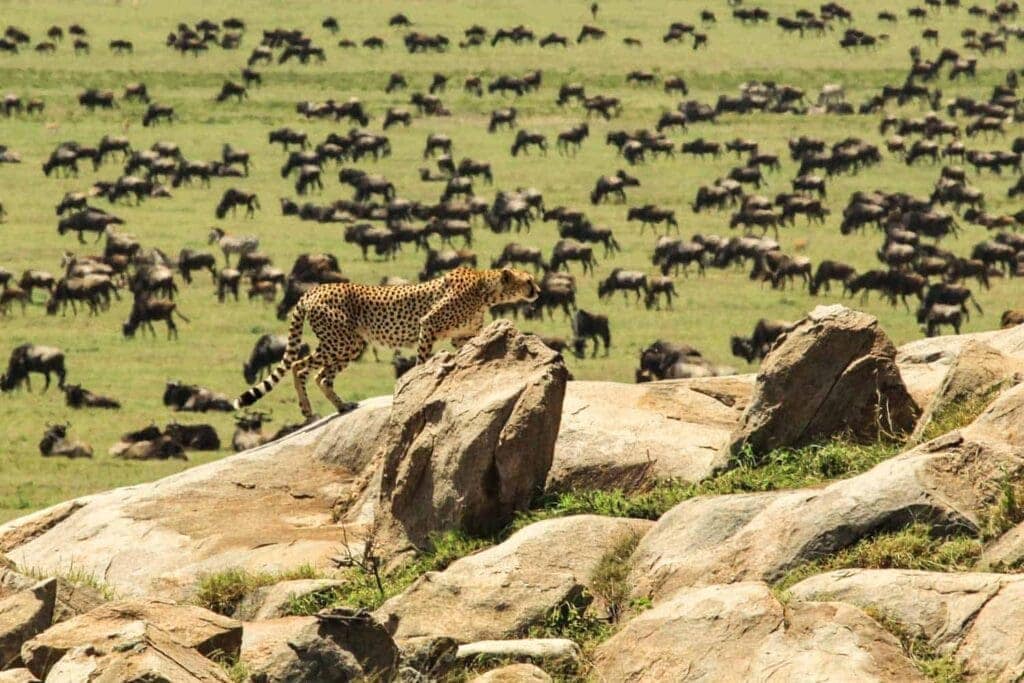The thrill of seeing the Big Five is often the prime reason for going on a safari. Seeing these wild animals in their natural environment is awe-inspiring and creates unforgettable memories. Despite safari lodges, operators, and guides undergoing the necessary training and implementing safety precautions, these animals remain unpredictable. It’s essential to know how to stay safe while on safari in Africa for your own well-being.
Guiding Training and Safety Measures
Very little industry data exists on fatalities related to wildlife safari experiences, as incidents involving the deaths of tourists are rare. Industry experts estimate that on average less than two deaths are reported a year, despite millions of travellers booking safaris annually.
Safari safety across the industry isn’t regulated by one specific organisation. Instead, standards are set by various bodies and associations across the continent, including adherence to sustainable and safe tourism practices and industry certification for guides. These measures contribute to high safety levels in safari operations across Africa.

Here’s a guide to the most popular safaris, an estimated thrill level, and suggested safety tips to ensure you remain safe and secure during your experience:
Big Five Safari Game Drives
- Thrill Level: High
- Safety Measures: encounters with lions, elephants, buffaloes, leopards, and rhinos can all be unpredictable during a Big Five safari. Always remain within the vehicle, follow your guide’s instructions, and keep noise levels to a minimum to avoid attracting attention. When spotting elephants, maintain a safe distance, especially from mothers with calves. Males are susceptible to a condition known as Musth, which makes them more energetic and irritable. It’s crucial to have an experienced guide who can read the environment and the animal’s behaviour.
Night Game Drives
- Thrill Level: High
- Safety Measures: The cover of darkness adds an element of unpredictability. Staying inside the safari vehicle, using only the guide’s spotlight, and keeping quiet enhances safety during these thrilling excursions.

Mountain Gorilla Trekking
- Thrill Level: High
- Safety Measures: Gorilla trekking in countries like Rwanda and Uganda is a unique experience. A qualified guide will brief you on respectful behaviour, such as not making direct eye contact and keeping a safe distance to prevent the transmission of diseases to this vulnerable species.
Cheetah Encounters
- Thrill Level: Moderate
- Safety Measures: Cheetahs are generally less aggressive towards humans, but maintaining a quiet and still presence helps prevent startling them and ensures a peaceful observation.
Walking Safaris
- Thrill Level: High
- Safety Measures: Walking in the bush brings you closer to nature but requires strict adherence to the guide’s directions. Always walk in single file, stay quiet, and don’t stray from the group.
Birdwatching
- Thrill Level: Low
- Safety Measures: Birdwatching safaris are generally safe, but being aware of your surroundings is essential, especially in areas where larger wildlife roams.
Hippo and Crocodile River Tours
- Thrill Level: Moderate to High
- Safety Measures: When in boats or on riverbanks, it’s vital to keep a safe distance from the water’s edge and follow all safety instructions, as hippos and crocodiles can be extremely dangerous.

Rhino Tracking
- Thrill Level: High
- Safety Measures: Rhino sightings are a rare privilege due to their endangered status. Keeping a safe distance and remaining downwind ensures your safety and the rhinos’ comfort.
Wildebeest Migration
- Thrill Level: Moderate
- Safety Measures: The Great Migration is a spectacular event to witness. Observing from a vehicle and keeping to designated areas prevents disturbing the animals and ensures a safe experience.

Basic Safari Safety Tips:
- Always choose a reputable safari operator with experienced guides.
- Stay in your vehicle unless instructed otherwise.
- Listen to and follow your guide’s instructions at all times.
- Wear neutral-coloured clothing to blend into the environment.
- Avoid loud noises or sudden movements that could startle wildlife.
Remember, every safari adventure is unique, and respecting wildlife is paramount to ensuring a safe and unforgettable experience. Adventure awaits, but safety always comes first. Contact us to discuss any added concerns or considerations you might have about planning your safari.
Author: Megan Warrington
Published:
Last Update:
Part of the South Africa Safari & Big Five Safaris Collections